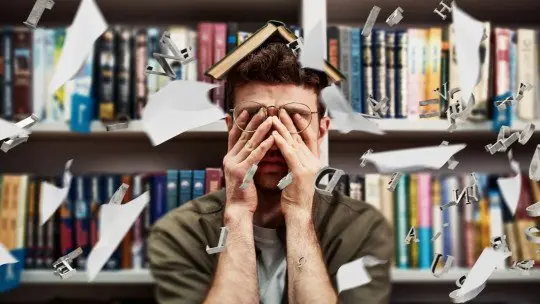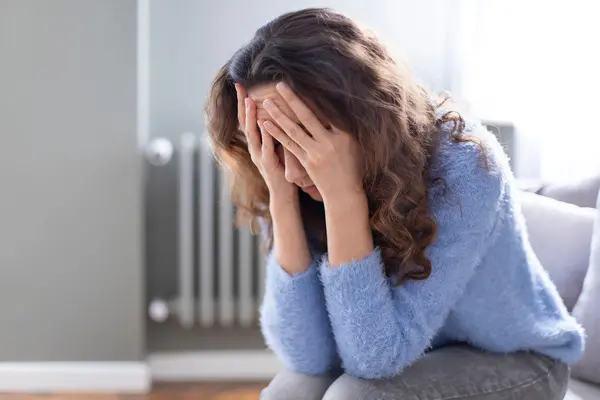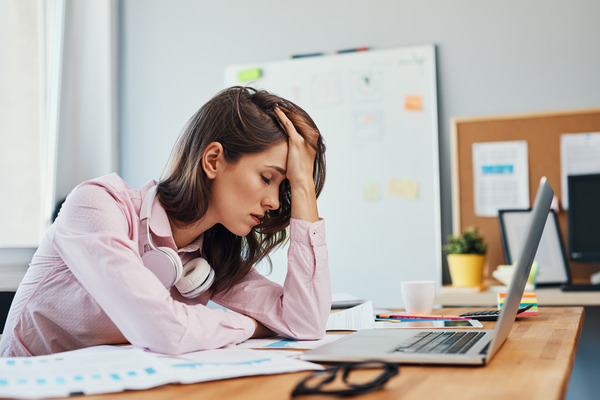How can we learn to manage our anxiety? What anxiety techniques can be effective in managing your physical and psychological symptoms? Find out how to manage it.
Anxiety is usually perceived as a series of thoughts and feelings that are out of control in addition to suffering from multiple physical symptoms. In this way, people feel many difficulties in managing their anxiety and reducing the negative emotions that are related to this disorder. Although at first, it may seem very difficult to know how to manage the physical and psychological symptoms of anxiety, the reality is that there are several techniques and tricks that can be useful for managing anxiety that can be useful to you. The key is to adopt strategies and restructure our habits. Therefore, what techniques for anxiety Can help us?
How to manage anxiety?
There are a wide variety of techniques that can help you manage anxiety But, you must keep in mind that each person must learn to manage anxiety in different ways, since it is a disorder that manifests and is perceived in different ways in each case. To manage anxiety and its physical and psychological symptoms, we can take into account the following strategies:
- Slow breathing: Although during times when anxiety is taking control of our body and mind it may seem useless to try to breathe more lethally, the reality is that thanks to this gesture we can help our body stop the response that is generated by these sensations and thoughts of danger. In fact, when we feel anxious our breathing becomes faster and shallower. Therefore, if you wish manage your anxiety , it is important that you try to deliberately slow down your breathing. To do this, you can count to three while inhaling slowly and do the same while exhaling slowly. An increased heart rate is also one of the characteristic symptoms. Keep in mind that you cannot control the heart, but your breathing and heartbeat match your breathing, so if you breathe slowly your heart rate will also decrease.
- Progressive muscle relaxation: At the first sign that you are suffering from physical and psychological anxiety symptoms, one of the ways to deal with them is precisely by using this technique. It consists of closing our eyes and tensing and relaxing each of the muscles in our body. That is, hold tension in each area of your body and then quickly release it. This will allow you manage anxiety because it will help you reduce the feeling of muscle tension that is often felt with this disorder. At first it may be difficult for you to apply relaxation at that moment, so it is advisable to practice it in moments of tranquility and train your muscles in this technique. Then, by loosening the muscles of the face or hands, the entire body will understand that it must relax. You can practice it first in moments of calm and gradually do it in moments of greater tension, this way you will be prepared to do it in moments of great anxiety.
- Stay in the present moment: People who suffer from an anxiety disorder often have a tendency to overthink the future in a negative way. If you want to learn to manage anxiety , it is essential that you try to confront these types of thoughts to return to the present moment. One of the ways to do this is precisely through mindfulness meditation, where you must focus on all the stimuli that you perceive at the moment. At first it may be difficult for you to apply relaxation at that moment, so it is advisable to practice it in moments of tranquility and train your muscles in this technique. Then, by loosening the muscles of the face or hands, the entire body will understand that it must relax. You can practice it first in moments of calm and gradually do it in moments of greater tension, this way you will be prepared to do it in moments of great anxiety.
- Have a healthy lifestyle: Although it is one of the tips for anxiety that are more repeated or more popularly known, we must highlight this because of how important it is to confront this disorder. Staying active, eating well, enjoying nature, as well as spending time with family and friends are “tips” for anxiety that are more effective than you imagine.
- Perform small acts of bravery: Avoiding situations that make us anxious may provide some relief in the short term, but it can make you feel many more symptoms in the long term. In this way, one of the tips for manage anxiety is to try to face these moments gradually. The reason for this is that in order to treat anxiety it is important to learn that even though we may fear or be afraid of a specific situation, even if it happens, we will be able to cope with it.

- Challenge your negative self-talk: How we think also affects the way we feel. Therefore, when someone suffers from anxiety, this can cause them to constantly underestimate themselves. In these cases, negative thinking is one of its greatest precursors. Given this, we can manage anxiety trying to reason with our negative self-talk, for example, trying to think of different interpretations for a situation that makes you anxious.
- Plan a time each day to worry: When a person suffers from anxiety, it is difficult to put aside all the worries that this disorder implies. Therefore, one of the ways to be able manage anxiety It is precisely trying to plan some time a day to be able to worry. That is, you can write or think about these anxiety-related worries for 10 minutes a day and then put them aside for the rest of the day.
- Know your anxiety : One of the best techniques to manage anxiety It may be knowing how this disorder manifests in your case. To do this, we recommend keeping a journal of when you can handle anxiety better and when you can handle it worse. Recognizing patterns and planning how to cope can be a way to proactively manage your anxiety. At first it may be difficult for you to apply relaxation at that moment, so it is advisable to practice it in moments of tranquility and train your muscles in this technique. Then, by loosening the muscles of the face or hands, the entire body will understand that it must relax. You can practice it first in moments of calm and gradually do it in moments of greater tension, this way you will be prepared to do it in moments of great anxiety.
- Learn from others : Talking to other people about how they experience anxiety can also help you learn to manage it In addition, discussing these feelings will also make you feel less alone.
- Don’t identify with your anxiety: When faced with an anxiety disorder, it is vital to be kind to ourselves. Therefore, you should try to keep in mind that you do not identify with your anxiety. Although this may seem of little relevance, the reality is that stopping identifying with this disorder will allow you manage anxiety better You can tell yourself that you have anxiety, but you are not anxious, this will help you distance yourself a little from the problem and understand that you can change it.
Although there are different types of anxiety disorders, research suggests that most are driven by similar underlying processes. That is, people with anxiety tend to feel more easily overwhelmed by their emotions and have particularly negative reactions to these unpleasant feelings and situations. Faced with these symptoms, it is vital to have the help of a mental health professional, as well as learn our own techniques and strategies to manage anxiety









